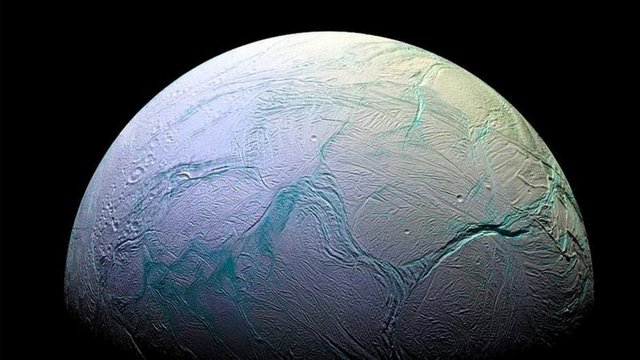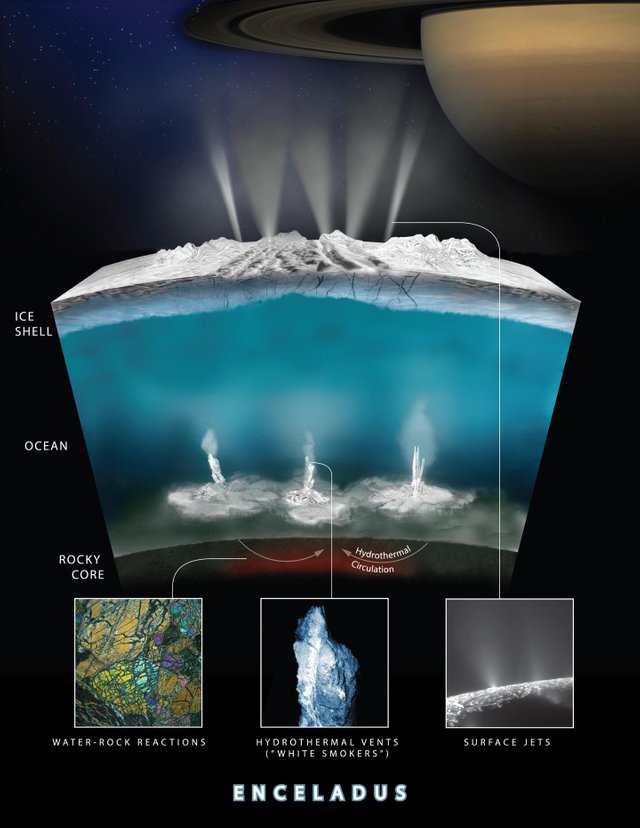Enceladus, the most interesting moon of Saturn
Enceladus, the most interesting moon of Saturn

Souce
On Enceladus there is a lot of water, but there is life, that is a good question. The research, which is in the news now, does not give us an answer to that question and perhaps we will not be certain about that question until we send a ship to analyze the material that the jets expel into space. Logically, if those jets expel water from the surface ocean of Enceladus, they can also expel some microorganisms that had the bad luck for them and the good luck for us to be trapped in those jets and be launched into space.

Souce
The pH of Enceladus's ocean is moderately high between 10.1 and 11.6, the pH scale measures the acidity or alkalinity of an element from one, which represents high acidity, to 14, which would mean high alkalinity and having about seven at the neutral point, therefore, the ocean of Enceladus is quite alkaline for comparison, the Earth's ocean has a pH of about eight and the pH of human blood is slightly alkaline. It goes from 7.35 to 7.45.
The Cassini probe previously detected the presence of organic molecules in the jets that emanate from the moon. Enceladus is a small moon with great mysteries, although what amazes me most about it is that it is only one of many, perhaps the smallest. In recent years we are discovering signs that practically all the large icy moons in the solar system have an ocean under their icy surface. They may be large or small, but they all hold the keys to why life may have emerged on them.
The images without reference were created with AI
Thank you for visiting my blog. If you like posts about #science, #planet, #politics, #rights #crypto, #traveling and discovering secrets and beauties of the #universe, feel free to Follow me as these are the topics I write about the most. Have a wonderful day and stay on this great platform :) :)

